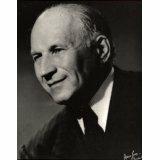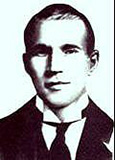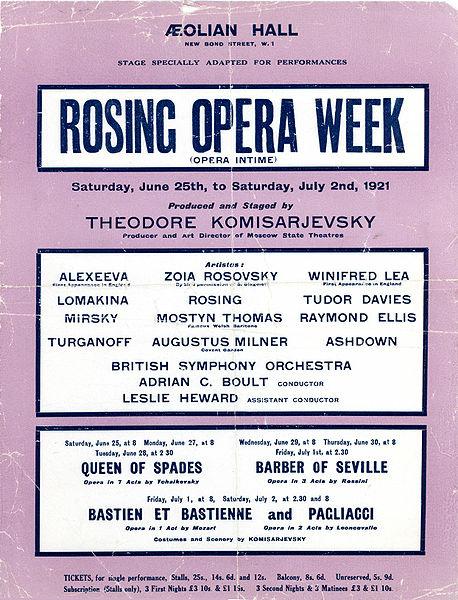Discography
Gramophone, St. Petersburg, May 1912
16560b Tosca (Puccini): E lucevan le stelle 4-22387
16561b Werther (Massenet): Pourquoi me réveiller? 4-22386
Gramophone, St. Petersburg, 30 November 1912
17069b Spanish serenade (Rechkunov) 4-22447
17070b We sat together (Chajkovskij) unpublished
17070½b We sat together (Chajkovskij) 4-22448
17071b O give me that night (Bagrinovskij) unpublished
17072b Cradle song (Grechaninov) 4-22449
17073b Romance (Grechaninov) unpublished
Gramophone, St. Petersburg, 3 December 1912
17077b Evgenij Onegin (Chajkovskij): I love you, Olga (w. Davidova) unpublished
17077½b Evgenij Onegin (Chajkovskij): I love you, Olga (w. Davidova) unpublished
17078b Virtus antiqua (Glinka) 4-22450
17078½b Virtus antiqua (Glinka) unpublished
2712c Carmen (Bizet): La fleur (Ru) unpublished
2713c Evgenij Onegin (Chajkovskij): Kuda, kuda unpublished
Gramophone, St. Petersburg, 19 December 1912
2721c Roméo et Juliette (Gounod): Donna che noti (w. Lipkovska) unpublished
2723c Traviata (Verdi): Un dì felice (w. Lipkovska) 054405
HMV, Hayes, 3 July 1913
Ho725ab Nature morte (Jakobson); Hebrew song (Glinka) 4-22674
Ho726ab O give me the night (Bagrinovskij) 4-22588
Ho727ab I wish I were with thee (Grechaninov) unpublished
Ho728ab I wish I were with thee (Grechaninov) 4-22589
Ho729ab Kamenshiki (Roznin) unpublished
HMV, Hayes, 18 July 1913
Ho731ab Autumn (Cherepnin) unpublished
Ho509ac Néron (Rubinstein): Strofi unpublished
HMV, London, 31 July 1913
ak16843e Majskaja noch (Rimskij-Korsakov): Levko's aria unpublished
ak16844e I remember the evening (Cui) unpublished
ak16845e Majskaja noch (Rimskij-Korsakov): Levko's aria 4-22617
ak16846e Mattinata (Leoncavallo) (It) 4-22675
ak16847e Autumn (Cherepnin) unpublished
ak16848e Do not believe (Petrov) 4-22613
ak16849e Autumn (Cherepnin) 4-22618
ak16850e Cradle song (Grechaninov) 4-22614
HMV, Hayes, 6 June 1914
Ho994b Silence (Kazhevarov) unpublished
Ho995b Silence (Kazhevarov) unpublished
Ho996b Majskaja noch (Rimskij-Korsakov): Levko's aria unpublished
Ho997b Majskaja noch (Rimskij-Korsakov): Levko's aria unpublished
Ho998b A warm night and an enchanted moon (Kochetov) unpublished
Ho999b A warm night and an enchanted moon (Kochetov) unpublished
Ho1000b All things pass away (Rachmaninoff);
In my soul winter reigned (Vrangel) unpublished
HMV, Hayes, 11 February 1915
Ho1134b Mattinata (Leoncavallo) unpublished
Ho1135b I opened the window (Chajkovskij) unpublished
Ho1136b Do not leave me (De Curtis) unpublished
Ho1137b Where my caravan has rested (Löhr) unpublished
Ho1138b Do not leave me (De Curtis) unpublished
HMV, Hayes, 23 May 1915
Ho1501ab Pikovaja dama (Chajkovskij): I know not her name unpublished
Ho1502ab Pikovaja dama (Chajkovskij): What is our life? unpublished
Ho1503ab Pikovaja dama (Chajkovskij): What is our life? unpublished
Ho834ac Pikovaja dama (Chajkovskij): Forgive me, bright celestial vision 2-022000, DB266
Ho835ac Pikovaja dama (Chajkovskij): If ever you knew 2-022001, DB266
HMV, Hayes, 24 March 1916
Ho2662ab Sweet perfume of lilacs (Plotnikov) unpublished
Ho2663ab Sweet perfume of lilacs (Plotnikov) unpublished
Ho2664ab Frenzied nights (Chajkovskij) unpublished
Ho2665ab My beautiful morning (Vrangel) unpublished
Ho2667ab Berceuse (Chajkovskij) unpublished
Ho2668ab Berceuse (Chajkovskij) unpublished
Ho2669ab Night (Chajkovskij) unpublished
Ho1689ac Night (Chajkovskij) unpublished
Vocalion, New York City, December 1918
1471 Tosca (Puccini): Recondita armonia unpublished
Vocalion, London, May 1919
01114 Tosca (Puccini): Recondita armonia A-0103, A-0206
01115 Pagliacci (Leoncavallo): Vesti la giubba A-0101, A-0205
Vocalion, London, June 1919
01158 Africaine (Meyerbeer): Ô paradis A-0169, A-0209
01161 Aida (Verdi): Celeste Aida A-0187, A-0210
Vocalion, London, July 1919
01237 Élégie (Massenet) A-0157, A-0210
01248 Martha (Flotow): M'apparì A-0141, A-0233
01251 Tosca (Puccini): E lucevan le stelle A-0119, A-0208
Vocalion, London, 16 October 1919
01412 Cavalleria rusticana (Mascagni): Addio alla madre A-0151, A-0209
01414 Trovatore (Verdi): Di quella pira A-0102, A-0205
Vocalion, London, 1 January 1920
01566 My beloved country (Grechaninov); Rain (Grechaninov) A-0134
01570 Song of the flea (Musorgskij) A-0118, A-0207, 52021, 70022
01571 Song of a poor wanderer (Manikin-Nestruev) A-0133
Vocalion, London, 20 January 1920
01598 Sadko (Rimskij-Korsakov): Song of the Indian guest (Fr) A-0189
01602 The dreary steppe (Grechaninov) A-0132
01606 Hunger (Cui) (83) A-0131
01608 The goat (Musorgskij) A-0140, A-0207
Vocalion, London, 17 March 1920
01714 The orphan (Musorgskij) B-3009, B-3104
Vocalion, London, 9 April 1920
01752 Knjaz Igor (Borodin): Medlenno den ugasal A-0159, 52022, 70022
01755 Field marshall death (Musorgskij) A-0188, A-0223
Vocalion, London, early June 1920
01839 Meistersinger von Nürnberg (Wagner): Prize song A-0153, A-0208
01841 Bohème (Puccini): Che gelida manina A-0104, A-0206
01843 Pagliacci (Leoncavallo): No, Pagliaccio non son A-0148, A-0223
01849 Roméo et Juliette (Gounod): Ah, lève-toi, soleil A-0190, A-0233
Vocalion, London, 4 August 1920
01933 The prisoner (Rubinstein) B-3013, B-3105
01934 The weeping herb; Prayer for alms; I am sitting on a stone;
Ah! my bright swallows (folk songs, arr Rimskij-Korsakov) A-0129
Vocalion, London, 11 August 1920
01937 The star (Musorgskij); Savishna (Musorgskij) A-0139
01938 Autumn leaves (Cherepnin) A-0128
01941 The wedding (Dargomyzhskij) A-0127
01943 Ballad (Musorgskij) B-3011
Vocalion, London, 25 August 1920
01962 Erjomushka's cradle song (Musorgskij) B-3010, B-3105, 60052
01965 The nightingale and the rose; A southern night (Rimskij-Korsakov) A-0126
01967 Death's serenade (Musorgskij) A-0137
01968 Death's serenade (Musorgskij) A-0137
Vocalion, London, early/mid September 1920
01970 The clock (Sakhnovskij) B-3007, B-3114, 60052
01971 Conceit (Borodin) B-3006
01973 Frenzied nights (Chajkovskij) B-3005
01974 The sea (Borodin) A-0125
01977 Lullaby (Vasilenko) A-0124
01978 Everybody says you're a fool; I'm a plucky chap (Balakirev) B-3004, B-3122
01982 Nimfa (Rimskij-Korsakov) A-0123
01983 The North Star (Glinka) B-3003
01986 Akahito (Stravinsky) B-3002
01988 Song of May (Medtner) B-3001
01989 The eagle (Arenskij) A-0122
Vocalion, London, 15 September 1920
01991 Trepak (Musorgskij) A-0135, A-0235
01993 Death's cradle song (Musorgskij) A-0138
01994 Spring waters (Rachmaninoff) B-3000, B-3104
Vocalion, London, January 1921
02139 Gathering mushrooms (Musorgskij) B-3012, B-3122
02140 The journey (Glinka) B-3008, B3114
02141 Hopak (Musorgskij) A-0130
02142 Field marshall death (Musorgskij) A-0136, A-0235
Vocalion, New York City, July 1921
7752 Knjaz Igor (Borodin): Medlenno den ugasal 52022, 70022
Vocalion, London, 7 September 1921
02490 Lord Rendell (arr Sharp) unpublished
02490x Lord Rendell (arr Sharp) A-0167, A-0225
02491 Over here (Wood) unpublished
02491x Over here (Wood) A-0168, A-0225
Vocalion, New York City, September 1921
Spring waters (Rachmaninoff) 30141
Song of the flea (Musorgskij) 52021, 70022
Vocalion, New York City, January 1922
Faust (Gounod): Salut! demeure 52029, 70021
Vocalion, New York City, April 1922
8362 Carmen (Bizet): La fleur 52034, 70021
Vocalion, New York City, June 1923
In the silence of the night (Rachmaninoff) 30172, 60048
Vocalion, New York City, July 1923
Sadko (Rimskij-Korsakov): Song of the Indian guest 30178, 60048
Vocalion, New York City, 8 September 1924
13651 Song of the Volga boatmen (arr. Koeneman) unpublished
13652 Song of the Volga boatmen (arr. Koeneman) unpublished
13653 Song of the Volga boatmen (arr. Koeneman) 38018, A-0230
13654 Song of the Volga boatmen (arr. Koeneman) unpublished
13655 Song of the Volga boatmen (arr. Koeneman) unpublished
13656 Dream on the Volga (Lullaby) (Arenskij) unpublished
13657 Dream on the Volga (Lullaby) (Arenskij) unpublished
13658 Dream on the Volga (Lullaby) (Arenskij) 38018, A-0230
Parlophone, London, 15 December 1933
XE6334-1 Song of the flea (Musorgskij) unpublished
XE6334-2 Song of the flea (Musorgskij) E11240, A4427, 25197
XE6335-1 Song of the Volga boatmen (trad) E11240, A4427, 25197
XE6335-2 Song of the Volga boatmen (trad) unpublished
XE6335-3 Song of the Volga boatmen (trad) unpublished
Parlophone, London, 23 February 1934
XE6393-1 My father has some very fine sheep (arr Hughes); Romance (Cui) E11247, A4432, 25468
XE6395-1 Danse macabre (Saint-Saëns); Cradle song (Grechaninov) unpublished
XE6395-2 Danse macabre (Saint-Saëns); Cradle song (Grechaninov) E11247, A4432, 25468
XE6396-1 Knjaz Igor (Borodin): Medlenno den ugasal E11251, A4441, 25188
Parlophone, London, 21 March 1934
XE6415-1 Do not depart (Rachmaninoff); Hunger (Cui) E11251, A4441, 25188
Parlophone, London, 29 November 1934
E6743-1 Don Juan's serenade (Chajkovskij) unpublished
E6743-2 Don Juan's serenade (Chajkovskij) unpublished
E6743-3 Don Juan's serenade (Chajkovskij) unpublished
E6743-4 Don Juan's serenade (Chajkovskij) R2015, A6092, 20364
E6744-1 Isobel (Bridge) R2015, A6092, 20364
Parlophone, London, 4 December 1934
XE6745-1 Black eyes; Gajda troika (trad) (w. Alekseeva) E11264, A4447
XE6746-1 The old waltz (trad); Two guitars (Vasilyev) (w. Alekseeva) E11264, A4447
Parlophone, London, 10 April 1935
XE6929-1 Trepak (Musorgskij) SW4, A4462, 29023
XE6930-1 Ballad; Savishna (Musorgskij) SW6, A4464, 29025
XE6931-1 Death's serenade (Musorgskij) SW5, A4463, 29024
XE6932-1 Sorochinskij fair (Musorgskij): Reverie of the young peasant SW3, A4461, 29022
XE6933-1 Gopak (Musorgskij) SW1, A4459, 29020
XE6934-1 The goat (Musorgskij) SW6, A4464, 29025
Parlophone, London, 11 April 1935
XE6937-1 Erjomushka's cradle song (Musorgskij) SW1, A4459, 29020
XE6938-1 The orphan; Gathering mushrooms (Musorgskij) SW3, A4461, 29022
XE6939-1 Death's cradle song (Musorgskij) SW4, A4462, 29023
XE6940-1 Field marshal death (Musorgskij) unpublished
XE6940-2 Field marshal death (Musorgskij) SW5, A4463, 29024
XE6941 Song of the flea (Musorgskij) S-1075
XE6944-1 The star (Musorgskij) SW2, A4460, 29021
XE6945-1 To the Dnjepr (Musorgskij) SW2, A4460, 29021
Parlophone, London, 25 May 1937
XE8372-1 At the ball; Again as before (Chajkovskij) unpublished
XE8372-2 At the ball; Again as before (Chajkovskij) R20376, AR1097, 29048
XE8373-1 The North Star; Virtus antiqua (Glinka) unpublished
XE8373-2 The North Star; Virtus antiqua (Glinka) unpublished
XE8373-3 The North Star; Virtus antiqua (Glinka) unpublished
XE8373-4 The North Star; Virtus antiqua (Glinka) R20374, AR1095, 29046
XE8374-1 The nightingale and the rose; A southern night (Rimskij-Korsakov) R20375, AR1096, 29046
Parlophone, London, 28 May 1937
XE8380-1 Don't speak, beloved; Why? (Chajkovskij) R20376, AR1097, 29048
XE8380-2 Don't speak, beloved; Why? (Chajkovskij) unpublished
XE8381-1 In the silence of the night; Spring waters (Rachmaninoff) R20378, AR1099, 29050
XE8381-2 In the silence of the night; Spring waters (Rachmaninoff) unpublished
XE8382-1 Oh, do not sing again!; The island (Rachmaninoff) unpublished
XE8382-2 Oh, do not sing again!; The island (Rachmaninoff) R20378, AR1099, 29050
XE8383-1 Dream on the Volga; Autumn (Arenskij) R20377, AR1098, 29049
XE8383-2 Dream on the Volga; Autumn (Arenskij) unpublished
Parlophone, London, 22 June 1937
XE8448-1 The sea (Borodin) R20375, AR1096, 29047
XE8449-1 Song of the poor wanderer (Manikin-Nestruev);
The drunken miller (Dargomyzhskij) R20374, AR1095, 29046
Parlophone, London, 21 July 1937
XE8537-1 The dreary steppe; Snowflakes; Rain (all Grechaninov) R20377, AR1098, 29049
References for the discography: www.78opera.com (defunct); Gesellschaft für historische Tonträger, Wien
|


